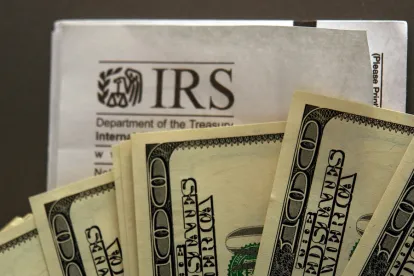On October 15, 2021, the IRS published Information Release 2021-203, based on Memorandum 20214101F (the "Memorandum") prepared by Field Attorneys in the Office of Chief Counsel, setting out a detailed procedure requiring taxpayers to perform extensive substantiation work when submitting a tax refund claim for research credits. If the Memorandum has its intended effect, taxpayers will file refund claims capable of meaningful review, which the IRS then can decide to allow on the merits, disallow on the merits, or assign for audit. At the same time, the Memorandum intends to dissuade taxpayers from inundating the IRS with procedurally defective refund claims based merely on estimates of research credits. The Memorandum states that if the IRS validly rejects a refund claim that does not follow the Memorandum's procedure, the taxpayer is treated as not having exhausted its administrative remedies and cannot thereafter sue for refund in court. The Memorandum is not, of course, legal authority. Taxpayers that plan to file research credit refund claims must consider whether, and to the extent that, they will comply with the Memorandum or otherwise challenge it.
Background: The government brief in Premier Tech, Inc, v. United States, (Fed. Dist. Ct. Utah, July 15, 2021), laid out its intense dislike of a methodology used by the taxpayer's consultants to develop and prosecute research credit refund claims. The government believed that the consultants based the claim "merely on estimates of the taxpayer's entitlement to the credit without identifying specific activities or business components that constitute qualified research or applying the statutory test for qualified research." These estimated claims arguably placed the IRS in a no-win situation. Without a meaningful factual statement of the claim, the IRS could not evaluate whether it should expend scarce resources to actively audit the claim or merely review and pay it. The IRS asserts that it receives thousands of such estimated claims.
Preparation of a claim for research credits, whether in an original return or a refund claim, requires a lot of work. It can be costly for a taxpayer to engage a consultant to do the work. As the IRS sees it, some consultants prepare a refund claim with a minimum amount of work and for a relatively modest contingent fee, and plan to do more extensive work only if the IRS audits the refund claim. The IRS obviously thinks that many of these estimated claims lack merit, not merely because they are estimates, but also because they can never satisfy the substantive research credit statutory requirements.
The IRS has developed a new procedure to require taxpayers to perform the extensive substantiation work when the claim is prepared and filed. The extensive substantiation will permit the IRS meaningfully to review the refund claim and then decide to allow it on the merits, disallow it on the merits, assign it for audit, or, alternatively, reject it outright if it does not contain the extensive substantiation.
New Research Credit Refund Claim Filing Procedure: According to the new research credit refund claim procedure set out in the Memorandum, a valid research credit refund must:
(i) Identity each product or production process to which the claim relates
(ii) For each such product or production process, identify all research activities performed
(iii) Identify all the individuals who performed each research activity
(iv) Identify the information that each such individual sought to discover
(v) State the total qualified research expenses claimed
The IRS prefers a written statement providing this information, but if the taxpayer submits only substantiating documents, the taxpayer must state where on each page of each document the required information is found. In other words, a taxpayer will not be permitted to meet the claim requirements with a "data dump." The IRS will reject a research credit refund claim that does not contain the information required by the Memorandum, and if the taxpayer litigates the rejection, the government will argue that the court lacks subject-matter jurisdiction because of the taxpayer's failure to file a proper administrative claim with the IRS.
Possible Taxpayer Response: A Treasury Department regulation (the "Refund Claim Regulation") sets for the content required for a valid refund claim:
The claim must set forth in detail each ground upon which a credit or refund is claimed and facts sufficient to apprise the Commissioner of the exact basis thereof…A claim which does not comply with this paragraph will not be considered for any purpose as a claim for refund or credit. Treas. Reg. §301.6402-2(b).
A claim does not require what amounts to a trial record. A number of cases have interpreted the Refund Claim Regulation, but none has supported the extreme evidence production requirements set forth in the Memorandum. The production requirements seem more like the evidence that a taxpayer would use to support a motion for summary judgment in a judicial proceeding or would introduce in a trial on the merits. Under current case law like Premier Tech, Inc, the Memorandum's requirements might not survive, and, of course, the Memorandum is not a Treasury regulation, and is not legal authority.
Moreover, if the case is tried, and if the taxpayer has thousands of employees engaged in research, as many large corporations have, it is doubtful that a court would allow or compel a taxpayer to introduce the minute information, employee-by-employee, that the Memorandum demands. As happened in several research credit cases, the taxpayer and IRS used statistical methods to manage the scope of the trial. The Memorandum is silent about use of statistical methods, perhaps believing that performance of qualified research, as contrasted with the expense of qualified research, can never be statistically determined. This leads to the question whether the taxpayer's burden of production of evidence to avoid rejection of a refund claim in an IRS administrative proceeding can be greater than the taxpayer's burden of production in court to avoid an IRS motion for summary judgment. An affirmative answer would be surprising.
An action to enjoin enforcement of the Memorandum's requirements might be considered. The Tax Injunction Act states that "no suit for the purpose of restraining the assessment or collection of any tax shall be maintained in any court by any person." IRC §7421(a). Taxpayers have had success in enjoining an IRS-mandated reporting action because "reporting" is not "assessment" or "collection." CIC Services, LLC v. IRS, 141 S. Ct. 1582 (2021). Taxpayers may consider whether such an action to forestall the Memorandum's requirements is advisable.
Even if an injunction proceeding were successful, it might be only a temporary taxpayer victory. It is naïve to believe that the IRS and the Treasury Department are not thinking about conforming the Refund Claim Regulation to the refund claim requirements spelled out in the Memorandum. Moreover, it takes little imagination to believe that if refund claims have estimated research credits, original returns have them, too. Thus, the IRS and Treasury might also conform the tax return form – Form 6765 that is filed with an original return to claim research credits – to the evidentiary requirements in the Memorandum. These changes could then lead to the question of whether a court would give Chevron deference to these changes, the issue being whether the administrative requirements for claiming research credits have become so burdensome that they undermine the Congressional intent to incentivize performance of technological research in the United States. Chevron deference means, of course, that a court will defer to a properly promulgated reasonable interpretation by an administrative agency of a statutory provision over which the agency has legal responsibility even if the court would have preferred a different interpretation.
Statutory Redesign: Taxpayers might want to encourage Congress to redesign the credit. Performance of technological research in the United States is vital. An effective tax credit realizes the Congressional objective of incentivizing that research.
Disputes between the IRS and taxpayers, however, diminish the Congressional objective. The statutory design is overly complicated. Suder v. Commissioner, TC Memo 2014-201. ("The research tax credit is one of the most complicated provisions in the Code."). A disputed interpretation could be hung on every one of the complicated statutory provisions. Statutory simplification is needed.
In 1986, when Congress enacted the current design of the credit in the predecessor of IRC §41, Congress rejected for credit purposes exclusive reliance on the definition of research for which a deduction for research expenses was allowed. The definition for the deduction was in the then-current Treasury regulation under IRC §174, the thinking having been that research for which a deduction was permitted was too broad for a credit. Since 1986, the Treasury regulation under IRC §174 allowing a deduction for research expenses was extensively amended and clarified. This amended and clarified regulation may work well to define research not only for the deduction allowed by IRC §174, but also for the credit allowed IRC §41.
In order to claim research credits, the present version of the research credit statute requires current year research expenses to exceed research expenses in a base period. The base period concept might be eliminated. It is anachronistic. In our current economic climate, Congress should not focus on compelling a taxpayer to perform more research than the taxpayer performed in a base period. Congress should focus on whether the taxpayer will continue to do any research in the United States. If the taxpayer performed research in the current year, the taxpayer should be entitled to credits for the research. Undoubtedly, other simplifying approaches may work as well or better, but inaction here, while other countries overtake our research abilities, is undesirable.





 />i
/>i
